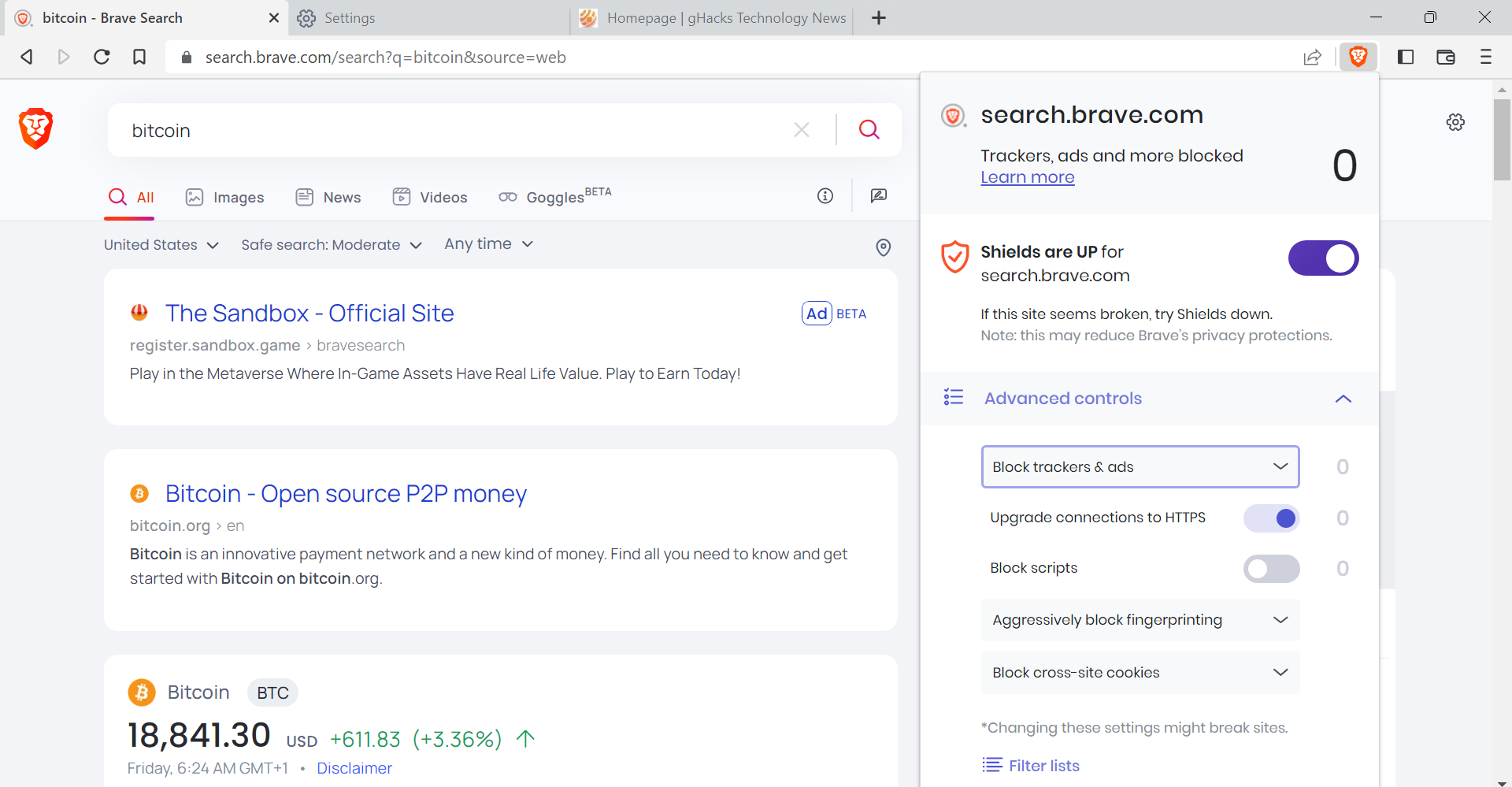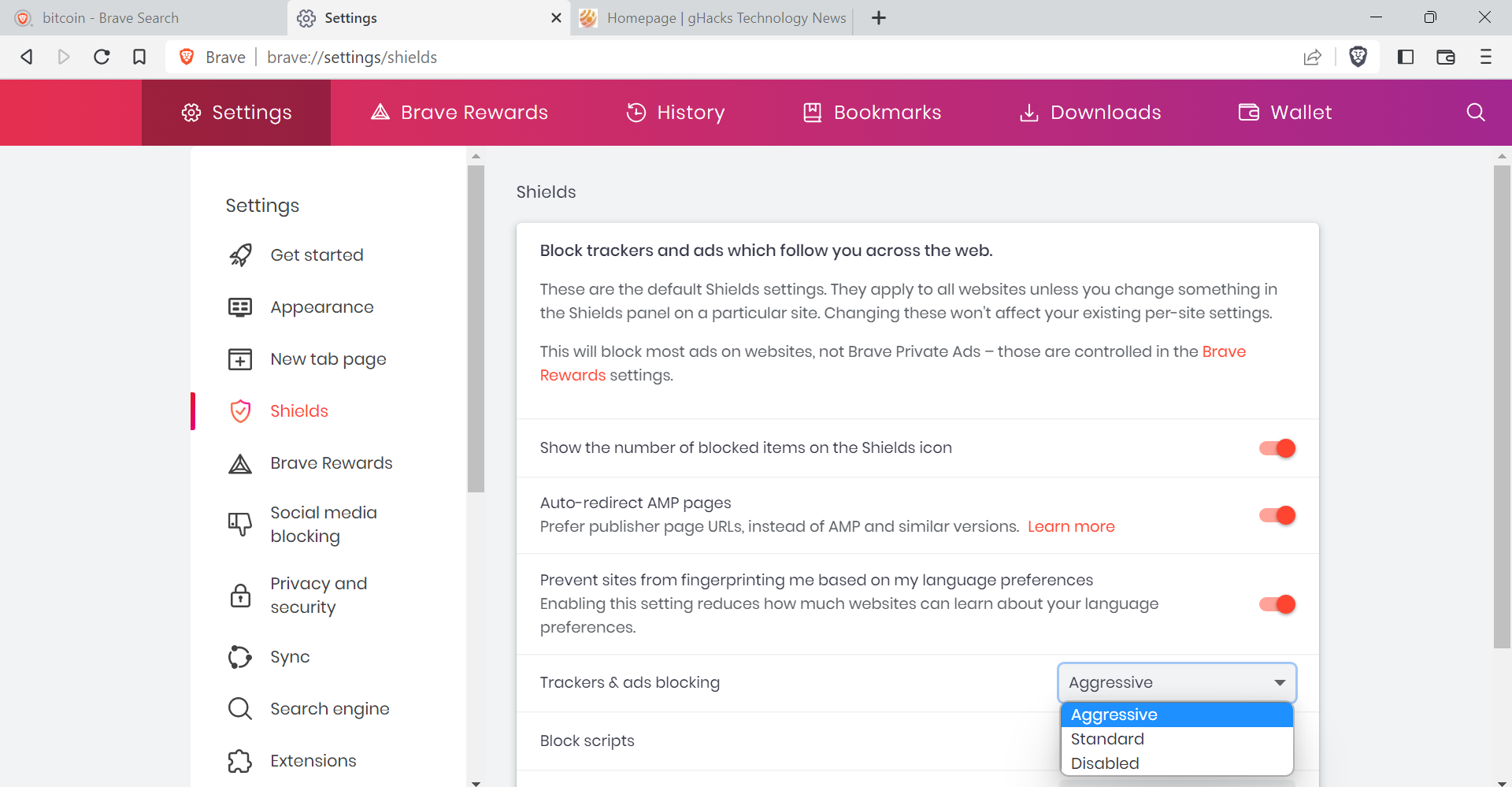A recent thread on Reddit resulted in a heated discussion about Brave Browser's content blocking and the company's dual-role as a browser maker and ad-tech company. The thread starter criticized Brave Browser for displaying the company's own ads on Brave Search in the Firefox subreddit.

Brave Search is the default search in Brave Browser. It is developed by Brave Software Inc, just like the browser. When you visit a Brave Search result in Brave, you may see an ad unit at the top of default. Shields, Brave's content blocking and privacy protection feature, is enabled by default in the browser, but ads are shown.
This may be confusing to some users. To better understand Brave's content blocking feature, it is important to understand the differences between the three available Brave Shield modes.
Brave uses the standard tracker and ad blocking mode by default. Users may change the mode for individual sites with a click on the Shield icon in the Brave toolbar or for all sites on the brave://settings/shields settings page.

The two other modes, aggressive and disabled, change the functionality significantly.
One of the most important differences between standard and aggressive blocking modes is that the former does not block first-party ads.
Most advertisement on the Internet is third-party based. Sites embed scripts from companies like Google on their websites to display advertisement and earn revenue from the ads. The technology and ads are provided by the third-party. Tracking is a bigger problem when it comes to third-party ads as well.
First-party ads are different, as no third-party connections are involved. A basic example is a text ad with a link displayed on a website. It loads no third-party content and is therefore considered a first-party ad. Brave's standard blocking mode does not remove these from any Internet site.
This means, that Brave handles Brave Search like any other website that displays first-party ads. These are not blocked in the default Shields configuration. Users may switch to the aggressive mode in the Brave settings to block first-party ads as well on all sites.
Closing Words
Many Internet sites rely on advertising revenue, but revenue is falling because of several factors. More and more publishers move towards a subscription-based model for revenue because of that, and there does not seem to be an end in sight.
To put it differently: Brave Browser, and many other products, including Firefox, would probably not exist without Internet advertising.
First-party ads are still ads, but they are not as invasive and often also not as taxing as third-party ads. They load faster, as no third-party connections are made, and there is less or even no tracking involved.
Now You: do you use a content blocker? Built-in a browser or standalone?
Thank you for being a Ghacks reader. The post Better understanding Brave Browser's content blocker appeared first on gHacks Technology News.


0 Commentaires